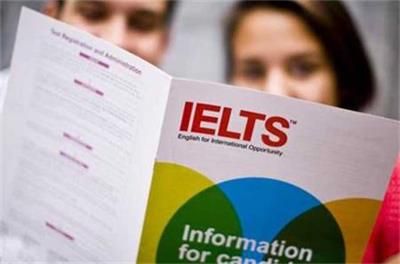留学生必看!雅思写作100个高频词汇(上)
嘿,小伙伴们,大家好!今天咱们来聊一聊雅思写作中的高频词汇。作为一位留学生的小编,我深知雅思考试对大家的重要性。写作部分是很多人头疼的地方,而掌握一些高频词汇不仅能提升你的表达能力,还能让你的文章更加丰富和地道。废话不多说,让我们直接进入正题吧!
1. Argument (论点)
首先,我们来看看“argument”。这个词在雅思写作中非常常见,尤其是在Task 2的议论文中。一个有力的论点能够让你的文章更有说服力。举个例子,如果你在讨论“是否应该禁止吸烟”,你可以这样写:“One strong argument in favor of banning smoking is that it significantly reduces the risk of secondhand smoke exposure, which can lead to serious health issues.”
2. Evidence (证据)
有了论点,当然少不了证据。Evidence就是用来支持你的论点的事实或数据。比如,你可以说:“According to a recent study by the World Health Organization, countries that have implemented smoking bans have seen a significant decrease in smoking-related illnesses.” 这样一来,你的论点就更有说服力了。
3. Perspective (视角)
Perspective指的是不同的观点或看法。在写作中,展示多种视角可以使你的文章更加全面。例如:“From the perspective of public health, banning smoking in public places is a necessary step to protect non-smokers. However, from an economic standpoint, it could negatively impact businesses that rely on smokers as customers.”
4. Consequence (后果)
Consequence指的是某个行为或决定的结果。在写作中,讨论后果可以帮助读者更好地理解你的论点。比如:“One potential consequence of implementing strict immigration policies is that it may lead to a shortage of skilled workers in certain industries, which could hinder economic growth.”
5. Solution (解决方案)
Solution是指解决问题的方法。在写作中,提出合理的解决方案可以增强文章的实用性。例如:“A viable solution to the problem of plastic waste is to promote the use of biodegradable materials and encourage recycling programs in communities.”
6. Benefit (好处)
Benefit指的是某件事情带来的好处。在写作中,强调好处可以让读者更容易接受你的观点。比如:“One major benefit of remote work is that it allows employees to have a better work-life balance, leading to increased job satisfaction and productivity.”
7. Drawback (缺点)
Drawback指的是某件事情的缺点。在写作中,客观地指出缺点可以使你的文章更加平衡。例如:“While remote work offers many benefits, one significant drawback is the lack of face-to-face interaction, which can lead to feelings of isolation and reduced team cohesion.”
8. Impact (影响)
Impact指的是某件事情的影响。在写作中,讨论影响可以帮助读者更全面地理解问题。比如:“The widespread use of social media has had a profound impact on communication patterns, particularly among younger generations.”
9. Trend (趋势)
Trend指的是某种发展的趋势。在写作中,提到趋势可以增加文章的时代感。例如:“There is a growing trend towards sustainable living, with more people opting for eco-friendly products and practices.”
10. Issue (问题)
Issue指的是某个需要解决的问题。在写作中,明确指出问题可以使文章更有针对性。比如:“One pressing issue facing many cities today is traffic congestion, which not only wastes time but also contributes to air pollution.”
11. Factor (因素)
Factor指的是影响某个结果的因素。在写作中,分析因素可以帮助读者理解问题的复杂性。例如:“Several factors contribute to the rise in obesity rates, including poor diet, lack of physical activity, and genetic predisposition.”
12. Approach (方法)
Approach指的是处理问题的方法。在写作中,提出不同的方法可以使文章更具实用价值。比如:“Different approaches to reducing plastic waste include government regulations, consumer education, and corporate responsibility initiatives.”
13. Aspect (方面)
Aspect指的是某个问题的不同方面。在写作中,讨论不同方面可以使文章更加全面。例如:“When considering the impact of technology on society, it is important to examine various aspects such as economic, social, and environmental impacts.”
14. Context (背景)
Context指的是某个问题的背景。在写作中,提供背景信息可以帮助读者更好地理解问题。比如:“In the context of global climate change, it is crucial to address the issue of deforestation, which contributes significantly to carbon emissions.”
15. Outcome (结果)
Outcome指的是某个行动的结果。在写作中,讨论结果可以使文章更有说服力。例如:“The outcome of the new educational reform has been positive, with improved student performance and higher graduation rates.”
16. Contribution (贡献)
Contribution指的是某个人或事物的贡献。在写作中,强调贡献可以增加文章的正面色彩。比如:“The contribution of renewable energy sources to reducing carbon emissions cannot be overstated, as they provide clean alternatives to fossil fuels.”
17. Influence (影响)
Influence指的是某个人或事物的影响。在写作中,讨论影响可以帮助读者理解问题的广泛性。例如:“The influence of social media on mental health is a topic of increasing concern, with studies showing a correlation between excessive social media use and higher levels of anxiety and depression.”
18. Measure (措施)
Measure指的是采取的措施。在写作中,提出具体的措施可以使文章更具操作性。比如:“To combat the issue of cyberbullying, schools can implement measures such as awareness campaigns, counseling services, and strict disciplinary actions.”
19. Strategy (策略)
Strategy指的是实现目标的策略。在写作中,提出有效的策略可以使文章更具指导意义。例如:“A successful strategy for improving public transportation systems involves a combination of infrastructure investment, technological upgrades, and user-friendly design features.”
20. Objective (目标)
Objective指的是某个行动的目标。在写作中,明确目标可以使文章更有方向性。比如:“The primary objective of the new healthcare policy is to ensure that all citizens have access to affordable and high-quality medical care.”
好了,今天的分享就到这里啦!希望这些高频词汇能帮助你在雅思写作中更加得心应手。如果你还有其他问题或者需要更多的帮助,欢迎随时留言哦!下次我们继续分享剩下的词汇,不见不散!




